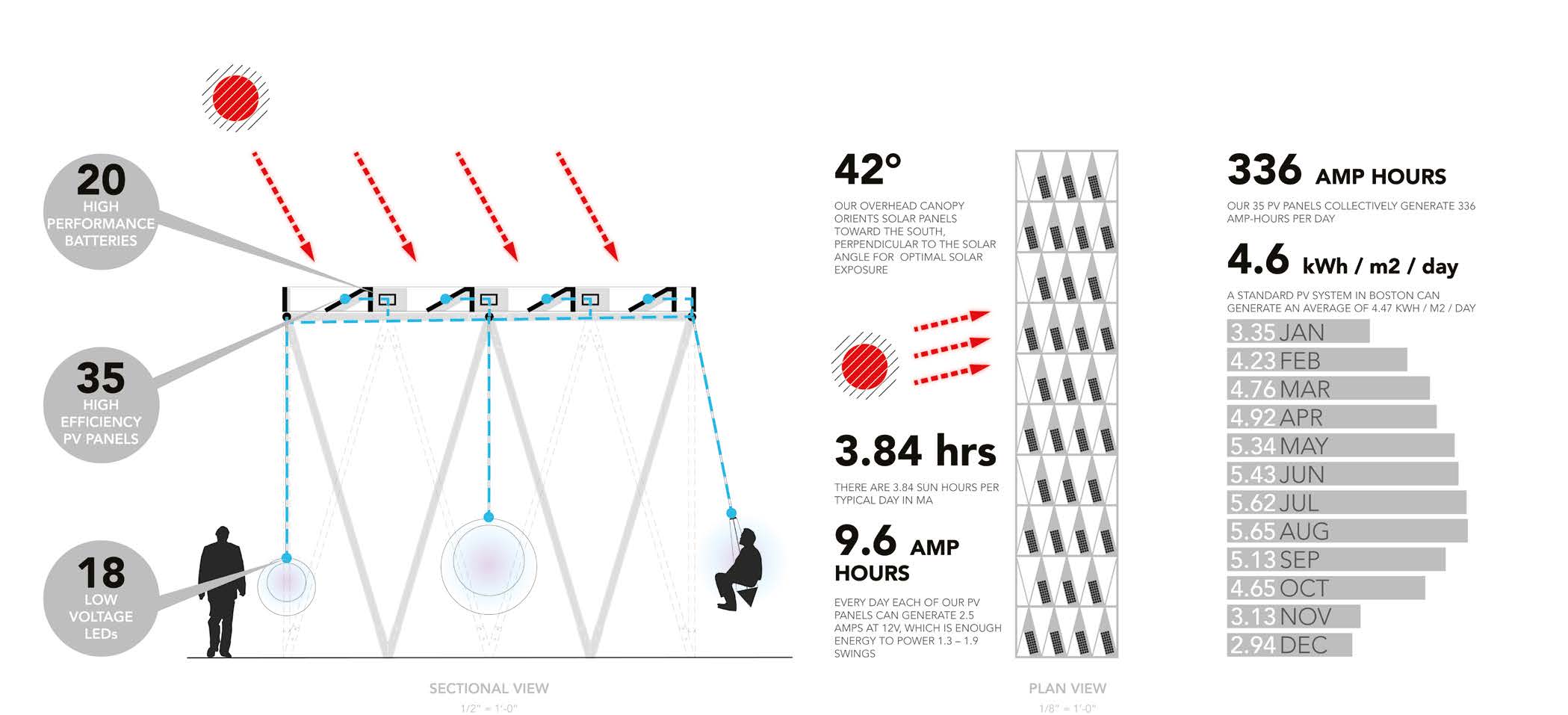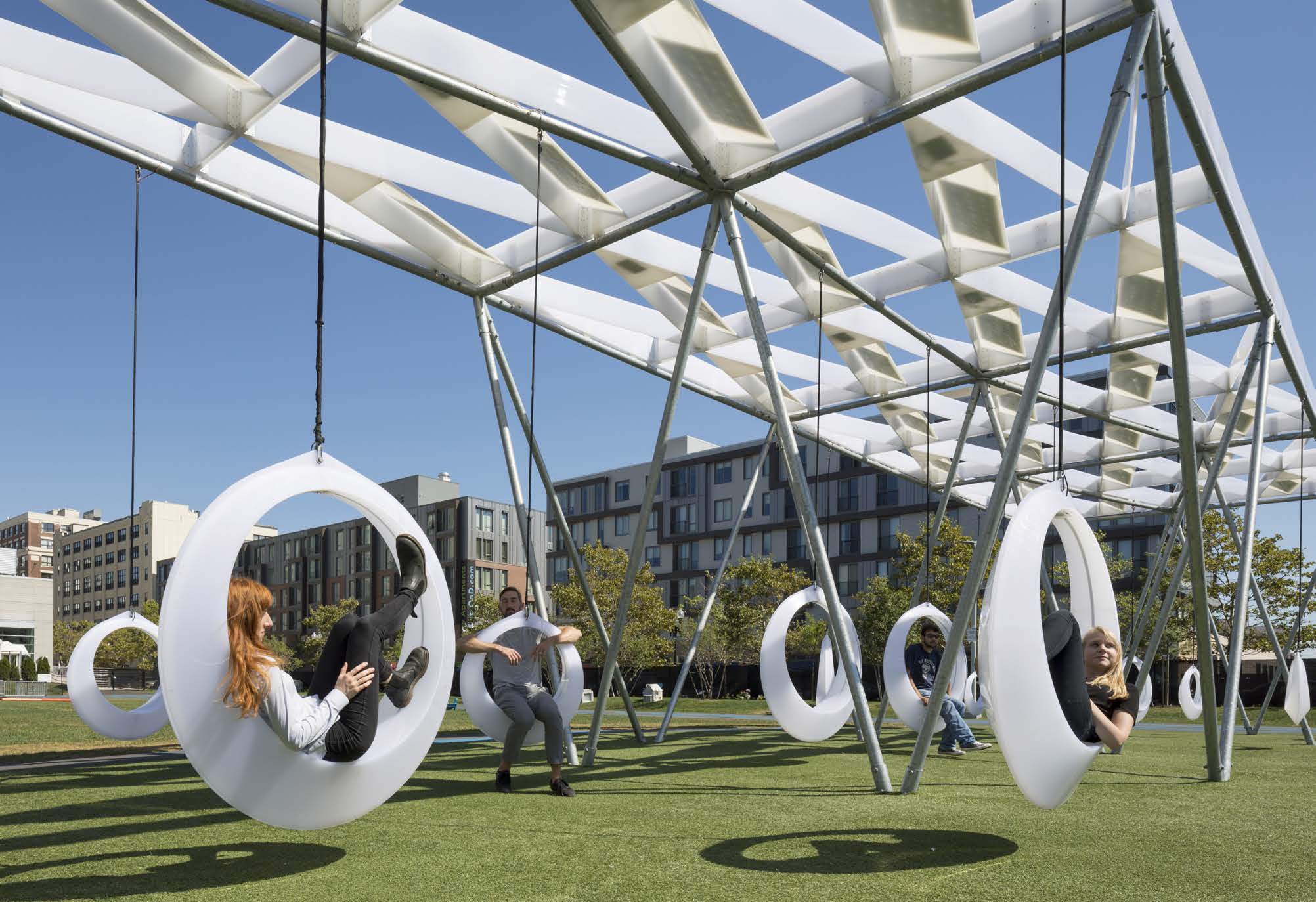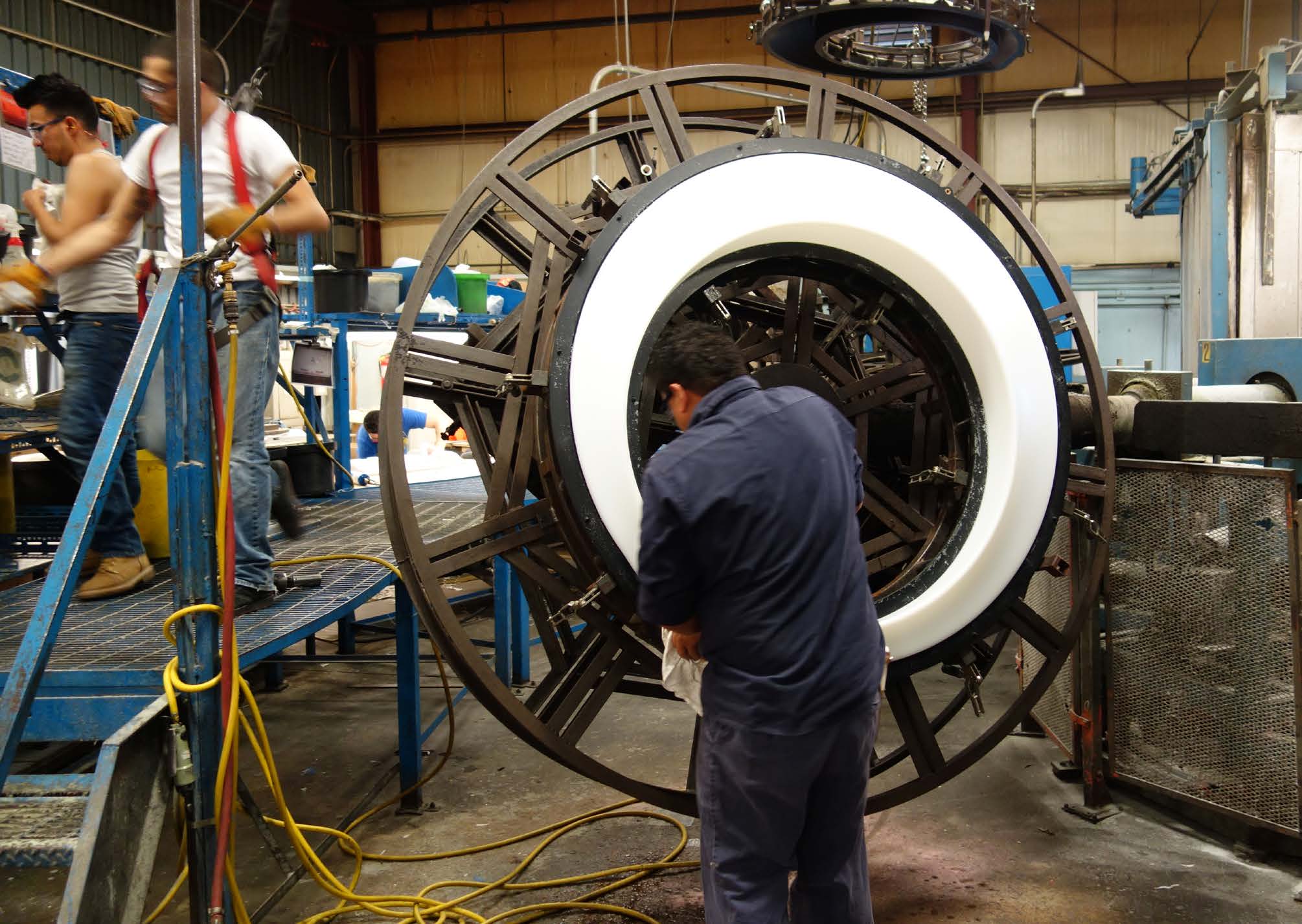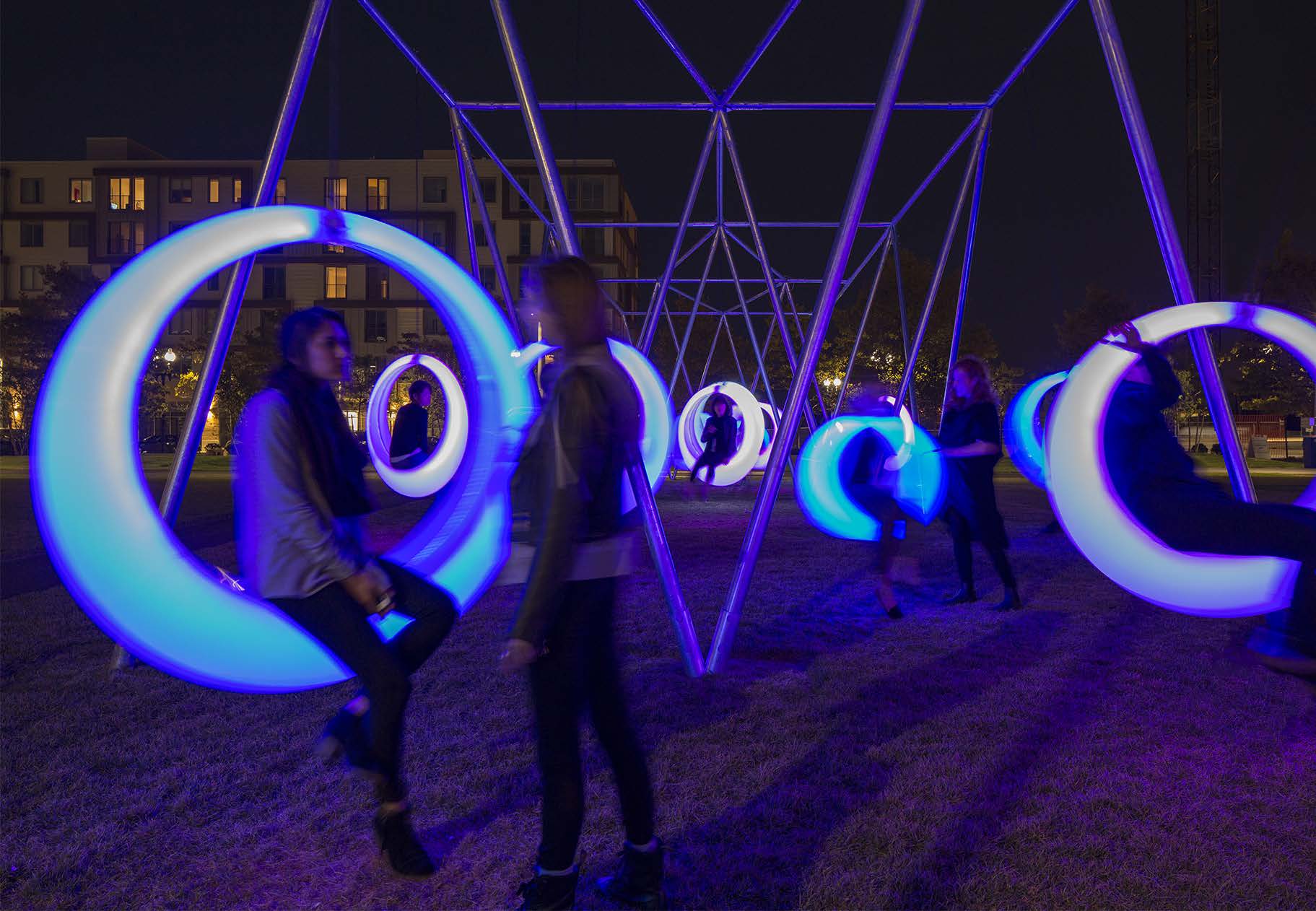| Line 1: | Line 1: | ||
{{Graph:Pie2 | {{Graph:Pie2|legend=Fruits|radius=125|values= [ | ||
| | {"x": "Peaches","y": 100}, | ||
| | {"x": "Plums","y": 32}, | ||
| | {"x": "Blueberries","y": 80}, | ||
{"x": "Strawberries","y": 46}, | |||
{"x": "Bananas","y": 41} | |||
] | |||
}} | }} | ||
Revision as of 07:13, 19 May 2020
 SQUARES & PUBLIC BUILDINGS SQUARES & PUBLIC BUILDINGS
|
 STREETS & PAVEMENTS STREETS & PAVEMENTS
|
 PARKS AND LANDSCAPE PARKS AND LANDSCAPE
|
 OTHER OTHER
|
Author: |
HÖWELER + YOON ARCHITECTURE |
BOSTON, USA, 2014 | |
| http://www.howeleryoon.com/work/48/swing-time | |
|
Swing Time is a temporary installation developed within the framework of the Massachusetts Convention Center Authority’s urban renewal initiative. The installation integrates energy generation and plays, demonstrating the relation between production and consumption.
polypropylene swings, which hang under a customfabricated solar canopy. The swings are designed in three different sizes so that the community can engage and play with Swing Time as individuals or in groups.
series of photovoltaic cells that translate UV rays into electrical illumination.
the playscape’s illumination corresponds to a daily accumulation of solar power, translating UV rays into a visual register that indexes the abundance of solar energy. |
Photovoltaic cells integrated into the canopy capture and store solar energy during daylight hours. Through an automated system, the accumulated energy is distributed into LED lights located on the swings. Moreover, accelerometers installed within each swing directly respond to the acceleration forces and tilt exerted by users.
light, thanks to the energy collected during the day. As the swings increase in momentum from a static position, a microcontroller adjusts the LED output through a gradient scale from white blue to purple. The responsive elements of Swing Time invite users to interact with the swings and with each other. The overall theme of Swing Time is to entice people of all ages to engage in active public play.
awareness of energy consumption and production. |
DIAGRAM OF APPLIED TECHNOLOGIES
DAY VIEW
CONSTRUCTION PHASE
NIGHT VIEW
 RESEARCH RESEARCH
|
 TEMPORARY TEMPORARY
|
 PERMANENT PERMANENT
|
 PROTOTYPE PROTOTYPE
|












